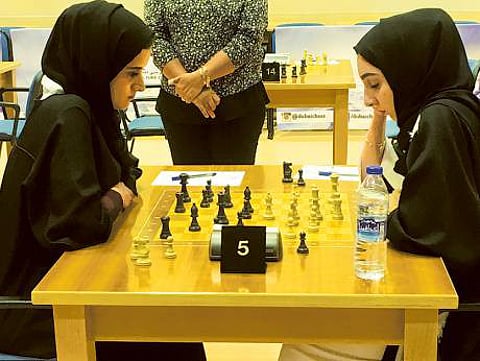Chess should be a subject in school
‘It enables a child to analyse different situations and to find the best solution’

Children need to be learning chess in schools because of the qualities and skills that the game develops in young minds. Chess is a game that is just, by nature. A child of five or six years old can start to learn a game that is completely fair. There is no third party to hinder or do anything, which will result in injustice. From a small age, a child plays chess and learns how to win fairly and lose fairly – to fight justly, win justly and lose justly. He learns to accept his defeat with dignity and to win with dignity and when two players shake hands, they choose respect towards these values.
Chess enables a child to make decisions independently, to assess the situation and to find the best way. Before reaching 10 to 15 years old, parents often dictate to children how to act, but when a child begins making his own decisions, he is able to become an independent person from a young age, which is very important for the society and humanity.
It enables a child to analyse different situations and to find the best solution and, as a result of the self-analysis, qualities are developed. It also enables a child to improve the quality of virtualisation of situations and to develop concentration to envision the changes of all possible situations.
Chess develops creative thinking not to be predictable by the opponent. Naturally, if your mind is conventional and not creative, you have less interesting thoughts, thus you cannot surprise your opponent or put him in an unexpected situation. That’s why a child who plays chess develops creative and original ways of thinking. When we combine all these qualities, we see the importance of chess in the educational system. However, in order to include chess in schools, we have a long way to go. Armenia is the only country where chess has been included in schools as a compulsory subject since 2011.
- The reader is a fide master and fide teacher.


